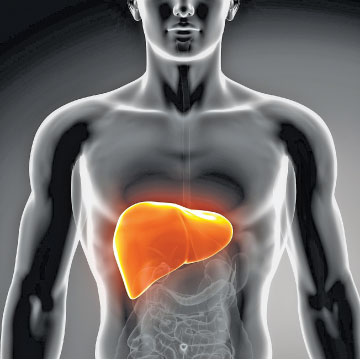
World Hepatitis Day was marked yesterday. This year, as in previous years since it was first launched in 2008, the World Health Organisation has reiterated its message to policy makers, health workers and the public to give serious thought to this silent killer, which often strikes without our knowledge. Preventing the disease is so much easier and less costly than treating it when it becomes complicated. The state has thus put in place several interventions to raise awareness on how by following a few simple personal hygienic rules and educating at risk mothers to have their children immunised against it at no cost, viral hepatitis can be reduced if not prevented.
Consultant Epidemiologist, Ministry of Health, Dr Thilanga Ruwanpathirana talks to the Sunday Observer on how this can be done .
Excerpts…
 Q. Most people have heard of viral hepatitis but few understand the potential harm posed by this virus. Tell us : Is viral hepatitis a common infection in Sri Lanka?
Q. Most people have heard of viral hepatitis but few understand the potential harm posed by this virus. Tell us : Is viral hepatitis a common infection in Sri Lanka?
A. Sri Lanka reports very few numbers of viral hepatitis patients per year.
Q. Is it endemic? Are there specific times of the year when there are major outbreaks of the disease?
A. Yes, it is endemic in Sri Lanka. Hepatitis A, infection constantly maintains a baseline level and a temporary rise has been observed along with the monsoon rains, however not in outbreak proportions.
Q. How is it spread?
A. Hepatitis A, D and E are spread by ingestion of infected food or water (Feco-oral route) i.e. when a healthy person consumes food or water that has been contaminated with stools of an infected person. Other than this, normal day-to-day relationship with an infected person will not spread the disease.
Hepatitis B and C are spread through body fluids. Though the transmission is similar to HIV/AIDs, the Hepatitis B transmission is much easier than HIV. Unprotected sexual contacts (both hetero and homo-sexual), unscreened blood or organ transplant, sharing injection needles, razors and toothbrushes could transmit Viral Hepatitis B and C. Further, these two viruses can transmit from mother to child during delivery. Practices like body piercing and tattooing also carry the risk of contracting Hepatitis B and C. However, they are not spread by having normal day-to-day relationship with an infected person.
Q. There are different types of hepatitis ABCDE. What type is common to Sri Lanka?
A. Viral Hepatitis types which are spread by ingestion of food and water are much commoner than the one spread by body fluids. Of the food and water spread group, Hepatitis A is more common. Hepatitis due to type D and E are rare in Sri Lanka.
Q. What is the incubation period of the main Viral Hepatitis types and what is the value attached to them in prevention?
A. Incubation period refers to the time from the first contact with the virus to the time of the first appearance of the symptoms of the disease.
The incubation period of Viral Hepatitis A is between 14 to 28 days. When the incubation period is long the preventive activities also need to be carried out for a longer period in an intensified manner. Hepatitis B reports an incubation period of 1-6 months averaging around 4 months. However, the incubation period of Hepatitis C is shorter (6-10 weeks).
Q. Tell us about the symptoms of viral hepatitis and what to look for.
A. Yellow colour discolouration of the body which is medically termed as Jaundice is one of the main features of Viral Hepatitis.
 Especially, this can be seen in eyes, palms and fingernails. The disease usually starts with symptoms like fever, fatigue, loss of appetite, nausea, vomiting and abdominal pain. With the progression of the disease, dark coloured urine, light coloured stools and Jaundice may appear.
Especially, this can be seen in eyes, palms and fingernails. The disease usually starts with symptoms like fever, fatigue, loss of appetite, nausea, vomiting and abdominal pain. With the progression of the disease, dark coloured urine, light coloured stools and Jaundice may appear.
Q. How do you identify different types of Hepatitis?
A. Most of the time, Viral Hepatitis is diagnosed clinically by Physicians. But the identification of the type needs laboratory investigations.
Q. What are the organs in the body that are most affected by hepatitis?
A. The liver is the main organ affected by the Hepatitis virus. It causes infection as well as inflammation of the liver tissue leading to damage. Hepatitis A is much less complicated than Hepatitis B and most of the time the changes that occur in the liver during the acute phase, revert back to normal with adequate rest with supportive care, after a reasonable time. However, rarely it could go into acute liver failure which could be fatal. Hepatitis A never causes long-term disease in the body.
Hepatitis B and C can stay in the body for longer periods causing severe liver damage leading to Cirrhosis or liver cancer. Of these two, the chances of chronic disease are more with Hepatitis C.
Q. What are the interventions taken by the Epidemiology Unit and Health Ministry to prevent its spread?
A. We have initiated general prevention and control measures for all types of Viral Hepatitis. They include:
1. Disease Surveillance: We have a well-established disease surveillance system for communicable diseases which helps to identify communicable disease outbreaks early and initiates the control and preventive activities soon. Further, it provides information about the success/failure of the already existing prevention programmes.
This is an electronically driven real-time disease surveillance system which helps the Epidemiology Unit to map out the communicable disease state in the country at any given moment.
Outbreak Control Activities – We have a time-tested outbreak management protocol for each and every disease. Rapid response teams established at the provincial and district levels are activated in the event of disease outbreak.
District teams are led by a specially trained dedicated medical officer named Regional Epidemiologist with the guidance of the Epidemiology Unit. MOHs and Public Health Inspectors (PHI) are working round the clock to prevent the spread of the disease in the event of an outbreak. Initial and ongoing staff training at regular intervals on outbreak control activities is one of the secrets for the high success in this area.
In addition we havespecific control and prevention measures for Hepatitis A, D and E . they include the following:
Water Quality Surveillance where water samples from each MOH office in the country is sent for bacteriological testing to the water quality labs in the Ministry of Health, once a month. This helps us identify the drinking water sources which are contaminated by faeces and take necessary actions .
Health Education :Value of drinking boiled cool water and proper disposal of human faeces has been constantly reiterated during the health education talks. Improvement of sanitary facilities is a mandatory component of the PHI’s duty list.
Immunization – There is a vaccine for Hepatitis A. However it is not given in the National Immunization programme and is reserved for use in uncontrollable outbreak situations.
We have also introduced the following specific measures for Hepatitis B and C: Child Vaccination through the National Immunization Programme - Three doses of Hepatitis B containing Pentavalent vaccine is given to all children in the country at 2, 4 and 6 months of age to provide full protection.
These vaccines are given free of charge through the field clinic settings organized by the MOH offices throughout the country. All vaccines in the national programme are given using a special sterile syringe (Auto-disable) to ensure single usage. These syringes get destroyed by itself if someone tries to use them twice.
Adult high-risk groups are vaccinated. e.g. hospital staff, medical and nursing students. Again, neither syringe nor a needle in the country is used twice under any circumstance.
Universal precautions are also strictly adhered to by the health staff.
i. Screening of blood and blood products before transfusion by the National Blood Transfusion service for Hepatitis B and C.No vaccines are available for Viral Hepatitis C, D or E
Q. Are these vaccines given to all babies or only those living in at-risk areas?
A. All these vaccines are given to all Sri Lankan babies free of charge and total costs of the vaccine and all other required instruments are borne by the Sri Lankan government.
Q. Are they available at private hospitals as well for a fee?
A. Yes, vaccines are given to the private sector hospitals free of charge by the government.
Q. Is Hepatitis a notifiable disease?
A. Yes, Hepatitis is a notifiable disease in Sri Lanka. Disease notification system starts on suspicion. When a patient is admitted to hospital with the clinical features suggestive of viral hepatitis, the respective ward staff should notify the patient’s MOH office immediately and should not wait till the final definitive diagnosis arrives. This notification carries the identification details including the address of the patient. Once the MOH receives this notification it will be handed over to the relevant area PHI for field investigation.
The PHI then visits the patient’s house and carries out his investigations to verify the diagnosis of viral hepatitis. Since the notification is initiated on suspicion, rarely it may not be a viral hepatitis case. However, adhering to this method prevents the delay in initiating field preventive activities if it is a real case. PHIs have also been instructed to identify the contacts of the patients who could be in the initial stages of viral hepatitis, and advise them to seek medical care early:
To identify the source of the disease
To start activities to stop further spreading of the disease
Finally, to report back to the MOH and feed data to the national database via the e-surveillance system.
Q. Does the PHI have additional duties to prevent the disease?
A. PHIs are required to fill up a special investigation form for viral hepatitis individuals. This form provides several details important in the planning of hepatitis preventive activities.
He extracts information from the diagnosis cards, clinic books and in the investigation reports. With this form we are able to differentiate the type of viral hepatitis and whether it is lab confirmed or not. Maintenance of such records over a period of time is required not only for the planning of preventive activities but also for the process of elimination of the disease in the years to come.
Q. Have you a message for the public regarding basic easy to follow rules to avoid getting hepatitis?
A. Always drink boiled cool water. Consume home cooked food as much as possible. Limit your sexual activities to a single faithful partner. Seek medical advice early if you have symptoms of viral hepatitis as mentioned earlier.
